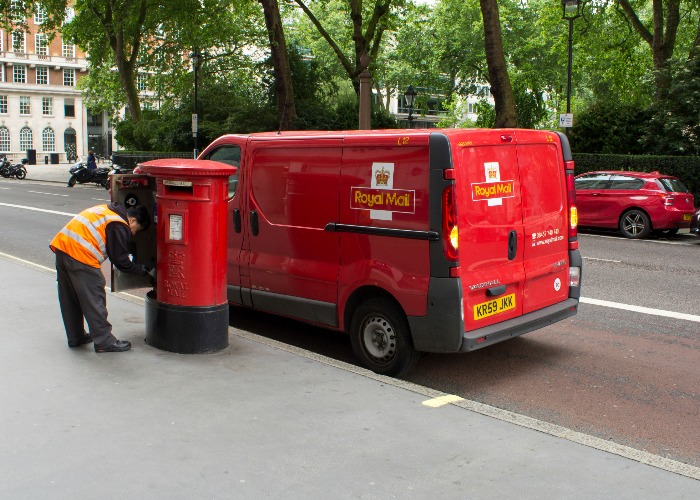Royal Mail cracks down on postal scams

Royal Mail and Trading Standards working together to cut out postal scams.
In the space of less than two hours earlier this week, my inbox was hit by more than thirty identical pieces of evil spam – all purporting to be an Inclarity Voice Message alert from what looks like an Indian phone number. Opening this on a Windows machine will mean a torrent of malware, including keyloggers that can read the most complex password.
Most of us can recognise this sort of stuff for the nasty rubbish it is and delete it without opening.
It's different with the post – that old-fashioned stuff that comes through your letterbox. You can't press a button and make it disappear. And if you are vulnerable, part perhaps of a more trusting generation or one that enjoys whatever arrives in the mail, then it is difficult to bin it unopened. It's even tougher because rip-off lotteries and prize draws may look virtually identical to the lotteries and prize draws used by respectable charities.
There is nothing new in this – these fraudulent pieces of mail have been part of the scam scene for decades. In many instances, recipients (usually the elderly) can see more than thirty items a week hitting their doormats. They are all well produced, employing the usual mail scam technique of several pieces of brightly coloured paper in one envelope. This makes it more difficult to ignore or throw away into the recycling bin.
The flood turns into a deluge of biblical proportions once a victim replies. The fraudsters know their business and if someone succumbs to one phoney draw, then there is an excellent chance they'll fall again and again for subsequent mailings.
A typical lottery will promise “guaranteed” entries which, while not the same as the impossible “guaranteed winnings”, would suggest that all you had to do was to send some money and a huge prize would be yours by return.
Sometimes, there is a “free gift” - usually something of very little value such as a cheap calender, to boost take-up.
Royal Mail cracks down
But from this week, junk mail fraudsters will find delivery of their rubbish harder to organise. For Royal Mail and Trading Standards have joined forces to launch a new initiative to tackle scam mail in the postal system, including the creation of a new improved process for cancelling the contracts of companies that send fraudulent post. It is always debatable whether companies sending fraud mail know the contents or not of each envelope – it can sometimes just be an arms' length deal.
The success of this initiative will depend on individuals reporting potentially fraudulent post. Recipients and their families, neighbours and friends are obviously crucial in helping this initiative succeed. But just as important are those who deliver the mail.
Training posties to spot scam mail
Posties are going to receive training in how to spot dodgy letters – they have to be attractive enough to catch the eye of potential victims which means they can easily be identified. They are also sent in substantial volume so that is another giveaway.
Trading Standards Officers will hold dedicated training sessions at Royal Mail delivery offices across the UK to show postmen and women items of scam mail so that they recognise fraudulent items. Royal Mail cannot, of course, open the letters or prevent delivery. Post delivery staff will be encouraged to report suspect mail to Royal Mail’s internal security team. Royal Mail will pass the information to Trading Standards so that they can investigate suspected scam mail and support potential victims.
Fraudsters are nothing if not nimble. If Royal Mail shuts down a delivery contract, then they will try elsewhere both in the UK and among the very many overseas postal organisations, some of which offer very cheap rates for mass mailings. Royal Mail is currently holding discussions with other post organisations to ensure that a banned company does not migrate its business elsewhere if the contract is cancelled.
Many scam mail merchants use multiple names. But the methods of operation are the same, often the material is identical except for the name change. So Trading Standards should easily come to a conclusion.
If you are worried by scam mail – or know someone who has been attacked – contact Royal Mail at Freepost Scam Mail or call us on 03456 113 413 or email scam.mail@royalmail.com
Protect your home from being stolen
Is this 'Tesco' voucher giveaway a scam?
Claims management firms turn to packaged bank accounts
Scammers cashing in on airline tragedies
Comments
Be the first to comment
Do you want to comment on this article? You need to be signed in for this feature